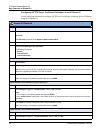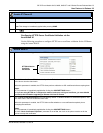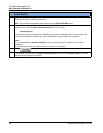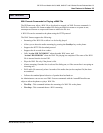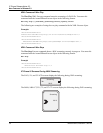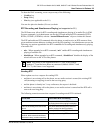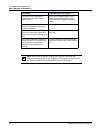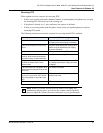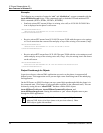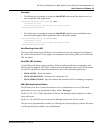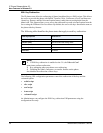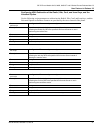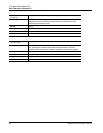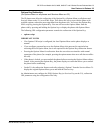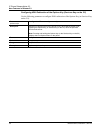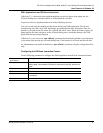
New Features in Release 2.3
34 RN-001029-02, Release 2.3, Rev 00
IP Phone Release Notes 2.3
Examples
The following are examples of using the “mix” and “disableIcon” execute commands with the
AastraIPPhoneExecute object. These commands apply to both the RTP and multicast RTP
XML commands (RTPTx, RTPRx, RTPMTx, RTPMRx).
• Send mix unicast RTP stream (if there is existing voice call) to 10.30.100.20:21000. Mix
icon is displayed on the phone’s call screen.
<AastraIPPhoneExecute>
<ExecuteItem URI="RTPTx:10.30.100.20:21000:mix">
</AastraIPPhoneExecute>
• Receive unicast RTP stream from 10.30.100.20 at port 21000 with the egress voice settings
at 3 levels more than the current offset and play on top of the existing voice stream (if any).
<AastraIPPhoneExecute>
<ExecuteItem URI="RTPRx:10.30.100.20:21000:3:mix">
</AastraIPPhoneExecute>
• Receive unicast RTP stream from 10.30.100.20 at port 21000 with the voice settings as used
earlier and play on top of the existing voice call (if any). Also, the mixing icon is not shown
on the call screen.
<AastraIPPhoneExecute>
<ExecuteItem URI="RTPRx:10.30.100.20:21000:mix:disableIcon">
</AastraIPPhoneExecute>
Dialpad Passthrough for Objects
In previous releases, when an XML application was active on the phone, it suppressed all
dialpad events. This suppression was to prevent digit events from being sent to the underlying
line application.
On the IP Phones, an XML Developer can now control digit passthrough while the phone is in
the connected state. (This feature is only applicable to phones in the connected state). This can
be done by setting the new “allowDTMF” attribute with the XML objects
AastraIPPhoneTextScreen, AastraIPPhoneFormattedTextScreen, and
AastraIPPhoneImageScreen. Setting this attribute to “yes” allows dialpad events to pass
through the XML applications.
Note: The default behavior for this feature is to suppress dialpad events
when an XML object is in focus (same as in previous releases). Other
XML objects ignore this attribute.



